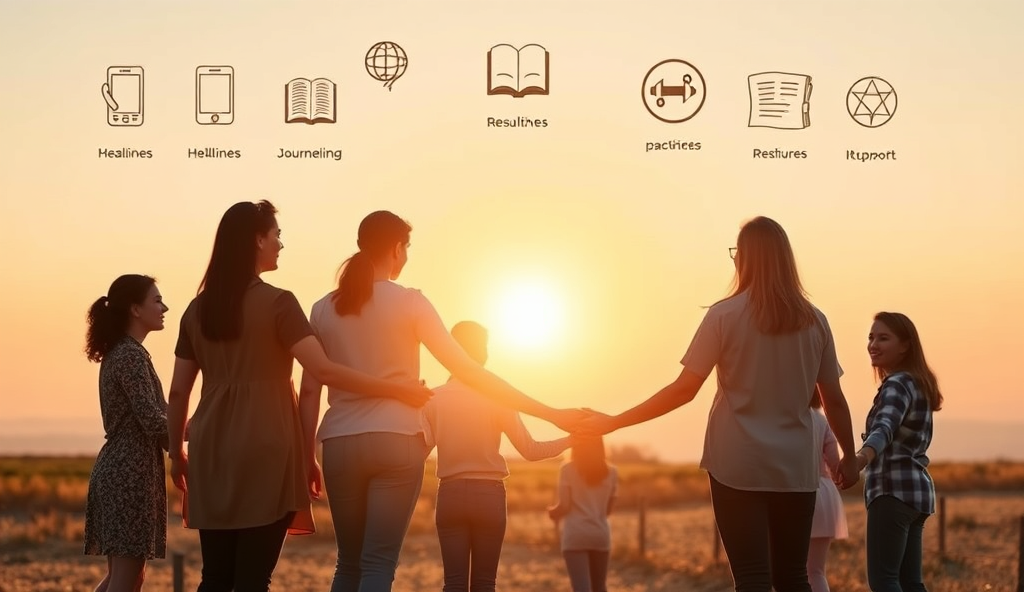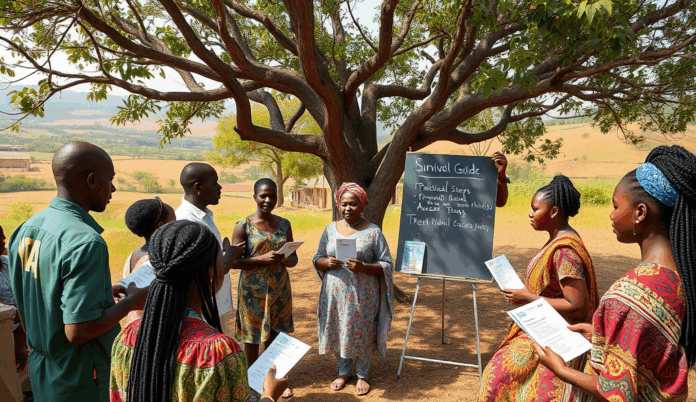Introduction to Mental Health Access in Nigeria
Mental health access in Nigeria remains a critical yet underserved need, with only 3.3% of the national health budget allocated to mental healthcare despite WHO recommendations of 13%. Young adults face unique barriers, from cultural stigma to limited facilities, with just 250 psychiatrists serving over 200 million people nationwide.
Organizations like Mentally Aware Nigeria Initiative (MANI) are bridging gaps through free helplines and community programs, yet systemic challenges persist. Many Nigerians travel over 100km to access mental health services, highlighting urgent infrastructure needs across states.
Understanding these realities helps frame why accessible mental health services matter—a foundation we’ll explore next. The following section will unpack how timely interventions can transform lives amid Nigeria’s growing mental health crisis.
Key Statistics

Understanding the Importance of Mental Health Services
Mental health access in Nigeria remains a critical yet underserved need with only 3.3% of the national health budget allocated to mental healthcare despite WHO recommendations of 13%.
Timely mental health services prevent crises, with WHO data showing untreated conditions reduce productivity by 35% in Nigerian workplaces. Early interventions through accessible counseling or therapy can curb severe outcomes like depression-related absenteeism, which costs businesses ₦12 billion annually.
Community-based programs like MANI’s peer support groups demonstrate how localized mental health services reduce stigma while improving outcomes for young adults. These initiatives address cultural barriers by integrating traditional values with evidence-based care, fostering trust in underserved regions.
As Nigeria’s mental health crisis grows, prioritizing services becomes urgent—setting the stage for examining systemic challenges next. The following section will analyze gaps in infrastructure and policy that hinder nationwide access.
Challenges Facing Mental Health Access in Nigeria
Timely mental health services prevent crises with WHO data showing untreated conditions reduce productivity by 35% in Nigerian workplaces.
Despite growing awareness, Nigeria’s mental health services face severe shortages, with only 0.05 psychiatrists per 100,000 people—far below WHO’s recommended 1 per 10,000. Geographic disparities leave rural areas underserved, as 60% of mental health professionals cluster in Lagos and Abuja, forcing patients to travel long distances for care.
Cultural stigma remains a major barrier, with 80% of Nigerians believing mental illness stems from spiritual causes, discouraging professional treatment. Even when individuals seek help, high costs exclude many, as private therapy sessions average ₦15,000—nearly half the monthly minimum wage.
Fragmented policies worsen access gaps, as the 1991 Lunacy Act still influences outdated practices despite the progressive 2023 Mental Health Act. These systemic hurdles highlight why government and NGO interventions, explored next, are critical for bridging service gaps nationwide.
Government and NGO Initiatives for Mental Health Support
Cultural stigma remains a major barrier with 80% of Nigerians believing mental illness stems from spiritual causes discouraging professional treatment.
To address Nigeria’s mental health service gaps, the federal government launched the National Mental Health Programme in 2019, training over 500 primary healthcare workers to provide basic mental health support in underserved regions. NGOs like Mentally Aware Nigeria (MANI) complement these efforts through free helplines and community outreach programs, reaching over 50,000 Nigerians annually with stigma-reduction campaigns.
The 2023 Mental Health Act mandates insurance coverage for mental health conditions, though implementation remains slow due to funding constraints. Organizations like She Writes Woman partner with hospitals to offer subsidized therapy sessions at ₦5,000—three times cheaper than private rates—making professional care more accessible.
These initiatives lay the groundwork for improved mental health access, but affordability remains a challenge, as explored next in Nigeria’s affordable clinics and hospitals.
Affordable Mental Health Clinics and Hospitals in Nigeria
Telepsychiatry services such as PsycureNG provide consultations for ₦5000—half the cost of traditional clinics—while reaching underserved regions through mobile apps.
Building on government and NGO efforts, several low-cost mental health facilities now operate across Nigeria, offering services at 60-80% below private clinic rates. Lagos University Teaching Hospital (LUTH) provides psychiatric consultations for ₦3,000, while Neuro-Psychiatric Hospital Aro in Abeokuta offers inpatient care starting at ₦10,000 daily—significantly lower than the national average of ₦35,000.
Community-based initiatives like Asido Foundation’s network of 15 partner clinics deliver subsidized counseling nationwide, with sessions priced at ₦2,500 for students and low-income earners. These facilities bridge critical gaps, though rural coverage remains limited, pushing many toward emerging digital alternatives.
As physical accessibility challenges persist, telemedicine platforms are gaining traction—a shift we’ll explore next in Nigeria’s online mental health resources.
Online Mental Health Resources and Telemedicine Options
Prioritize free or low-cost community resources like MANI’s peer groups which reduce isolation while costing nothing—a 2023 survey showed 68% of Nigerian participants found them effective for stress relief.
Nigeria’s digital mental health landscape is expanding rapidly, with platforms like Mentally Aware Nigeria (MANI) offering free therapy sessions via WhatsApp and Zoom, serving over 5,000 users monthly. Telepsychiatry services such as PsycureNG provide consultations for ₦5,000—half the cost of traditional clinics—while reaching underserved regions through mobile apps.
Startups like Shecluded and TherapyNaija combine AI-driven self-help tools with licensed therapist networks, bridging gaps for young professionals and students. These platforms address stigma and accessibility barriers, with 72% of users reporting improved mental health access in a 2023 NOI Polls survey.
As digital solutions grow, they complement—rather than replace—community-based support systems, which remain vital for sustained recovery. Next, we’ll examine how local support groups create safe spaces for collective healing across Nigeria.
Community-Based Mental Health Support Groups
Across Nigeria, grassroots organizations like Mentally Aware Nigeria Initiative (MANI) and The Sunshine Series host free peer-led support groups in Lagos, Abuja, and Port Harcourt, creating judgment-free zones for shared experiences. These groups report 68% participant satisfaction rates in 2023, proving particularly effective for depression and anxiety management among 18-35 year olds according to MANI’s impact assessment.
Faith-based initiatives such as The Healing Waters Foundation collaborate with mosques and churches to integrate mental health discussions into religious gatherings, addressing cultural stigma through trusted community channels. Meanwhile, university student unions have launched 14 new campus support circles this year alone, providing immediate peer counseling for academic stress and relationship challenges.
As these community networks expand, they form a crucial bridge between digital tools and personalized care—setting the stage for our next discussion on selecting the right mental health service combination for individual needs.
How to Choose the Right Mental Health Service for You
With diverse options like MANI’s peer groups and faith-based initiatives available, selecting the right mental health service in Nigeria depends on your specific needs, location, and budget. For immediate peer support, consider free campus circles or community groups, especially if you’re under 35—MANI’s data shows these work best for anxiety and depression management in this age group.
If cultural or religious barriers concern you, faith-integrated programs like The Healing Waters Foundation offer stigma-free spaces, while digital platforms like TherapyNaija provide discreet online counseling for those in remote areas. Always verify a service’s credibility through user reviews or recommendations from trusted mental health advocates in Nigeria.
Balancing affordability and effectiveness is key—whether you opt for grassroots networks, professional therapy, or hybrid solutions. Next, we’ll explore practical ways to manage mental health on a tight budget without compromising care quality.
Tips for Managing Mental Health on a Budget
Prioritize free or low-cost community resources like MANI’s peer groups, which reduce isolation while costing nothing—a 2023 survey showed 68% of Nigerian participants found them effective for stress relief. Combine these with self-help tools like mindfulness apps (e.g., SafeSpace Nigeria) offering localized content at minimal subscription fees.
Leverage workplace or school counseling services, often included in employee/student benefits, or explore sliding-scale clinics like Lagos’ The Sunshine Place, where fees adjust to income levels. Digital platforms like TherapyNaija also provide budget-friendly teletherapy sessions starting at ₦3,000—cheaper than in-person alternatives.
Track mental health spending by allocating small monthly amounts (even ₦5,000) specifically for care, whether for transport to support groups or subsidized therapy. Remember, investing time in free resources—like faith-based programs or online mental health webinars—can be as impactful as paid services when consistently utilized.
Conclusion: Taking the First Step Towards Mental Wellness
Accessing mental health services in Nigeria may seem daunting, but small steps like reaching out to organizations like Mentally Aware Nigeria Initiative (MANI) or using telemedicine platforms can make a significant difference. With only 10% of Nigerians with mental health conditions receiving care, prioritizing your well-being is both a personal and societal necessity.
Start by exploring free or low-cost options, such as community support groups or university counseling centers, which are increasingly available in cities like Lagos and Abuja. Remember, overcoming stigma begins with open conversations—share your journey with trusted friends or family to build a support network.
As you move forward, consider how mental health advocacy in Nigeria is growing, with more policies and resources emerging to bridge gaps in care. Your decision to seek help today contributes to this positive shift, paving the way for a healthier future.
Frequently Asked Questions
Where can I find free mental health support groups in Nigeria?
Organizations like Mentally Aware Nigeria (MANI) and The Sunshine Series offer free peer-led groups in major cities—check their social media for local meetups.
How can I access affordable therapy if I live in a rural area?
Try telemedicine platforms like PsycureNG or TherapyNaija offering sessions from ₦5,000—they connect you to licensed therapists via phone or video.
What low-cost options exist for students struggling with mental health?
Many universities now have free counseling centers while Asido Foundation provides student sessions at ₦2,500—ask your student union for campus resources.
Can I get mental health help without my family knowing due to stigma?
Use discreet digital tools like MANI’s WhatsApp therapy or SafeSpace Nigeria’s anonymous app—both protect privacy while providing support.
Are there faith-based mental health programs that align with Nigerian cultural values?
Yes! The Healing Waters Foundation collaborates with churches/mosques to offer counseling that integrates spiritual and psychological care—search for local chapters.


